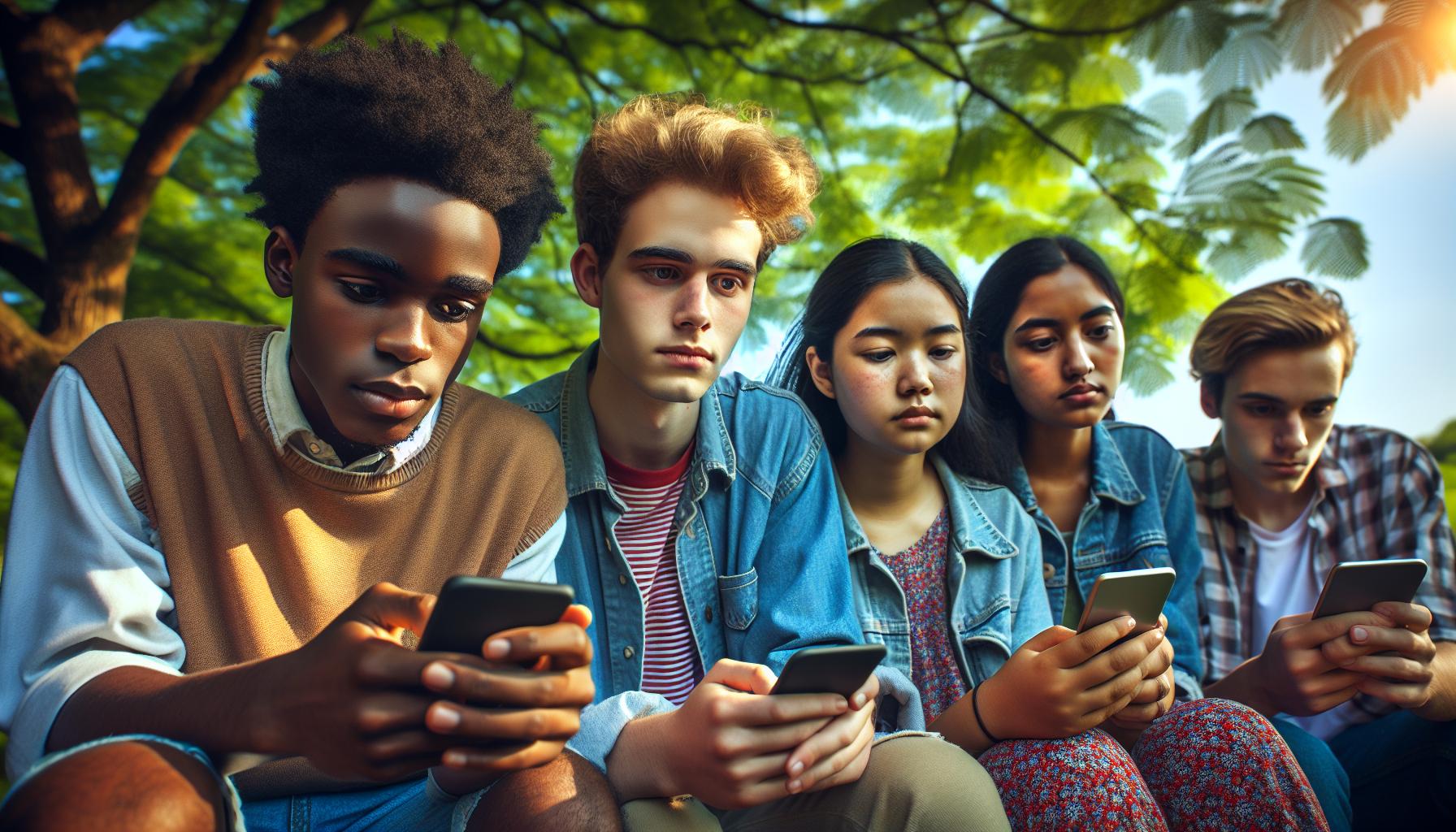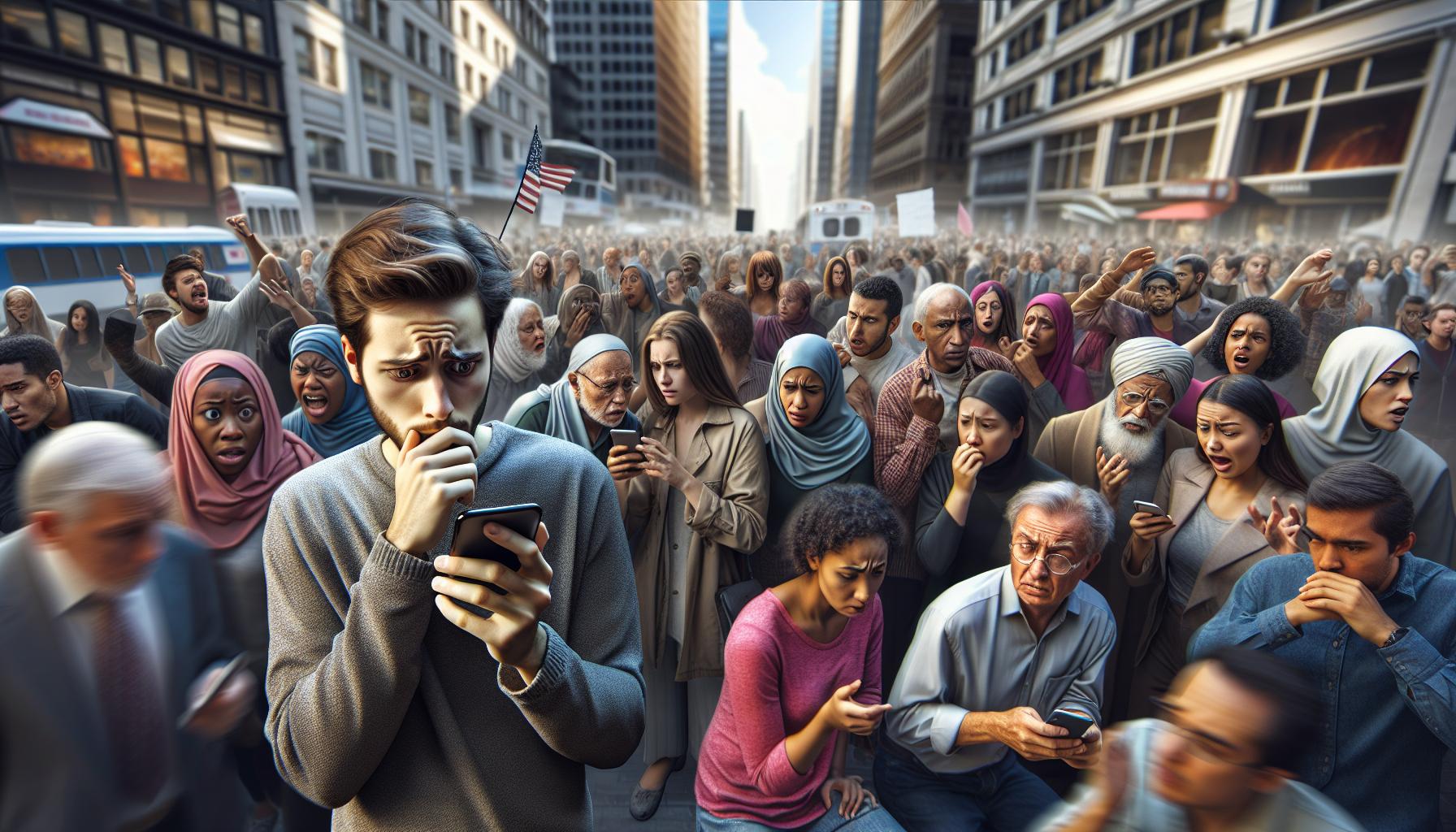Key Takeaways
- Understanding Risks: Social media offers numerous benefits but also presents significant dangers, including cyberbullying, misinformation, and privacy breaches that can affect users of all ages.
- Mental Health Impact: Social media contributes to rising levels of anxiety and depression, particularly among teenagers, due to comparison, validation needs, and excessive screen time.
- Cyberbullying Prevalence: Approximately 36% of youths experience cyberbullying, leading to serious emotional distress, social isolation, and increased mental health issues.
- Social Isolation: Despite connecting users worldwide, social media can lead to feelings of loneliness and neglect of in-person relationships, with 27% of users expressing loneliness.
- Spread of Misinformation: The rapid spread of false information on social media significantly impacts public perception and trust, with 70% of individuals encountering misleading content.
- Privacy Risks: Data breaches and identity theft are major concerns, highlighting the importance of safeguarding personal information when engaging on social platforms.
Social media has transformed the way people connect and communicate, offering a platform for sharing ideas and experiences. However, beneath the surface of likes and shares lies a complex web of dangers that can impact mental health, privacy, and even personal safety. As users navigate this digital landscape, they often encounter risks that can lead to serious consequences.
From cyberbullying and misinformation to privacy breaches, the threats posed by social media are becoming increasingly apparent. Understanding these dangers is crucial for users of all ages, as awareness can empower them to make informed choices. In a world where social media is woven into the fabric of daily life, recognizing the potential pitfalls is the first step toward safer online interactions.
What Are The Dangers of Social Media
Social media encompasses online platforms that facilitate communication, sharing, and connection among users. Key platforms include Facebook, Twitter, Instagram, and TikTok, which allow individuals to share content, engage with others, and access vast information.
Social media usage continues to rise, with over 4.7 billion active users globally as of 2023. Users engage with social media through various activities, including posting updates, commenting, and sharing videos or images.
Despite its advantages, social media also presents significant dangers. Cyberbullying affects approximately 36% of individuals aged 12 to 17, leading to serious emotional distress. Misinformation spreads rapidly on these platforms, influencing public perception and behavior. Privacy breaches are common, exposing personal information to malicious actors.
Understanding these issues is crucial for users to navigate social media safely and responsibly. Remaining informed about the potential risks fosters a safer online environment for everyone.
Psychological Effects

Social media can significantly impact mental health, often leading to adverse psychological outcomes. Users frequently experience heightened levels of anxiety and depression due to various factors linked to their online interactions.
Anxiety and Depression
Social media platforms contribute to rising anxiety and depression rates among users. Individuals often compare themselves to curated images and lifestyles portrayed online, fostering feelings of inadequacy. Studies indicate that 30% of teenagers experience anxiety due to social media use. Additionally, the constant need for validation through likes and comments exacerbates stress levels, leading to a cycle of emotional turmoil. Notably, excessive screen time correlates with increased symptoms of depression, particularly among youth.
Cyberbullying
Cyberbullying represents a significant danger on social media, affecting approximately 36% of individuals aged 12 to 17. Perpetrators often target victims anonymously, amplifying the emotional impact. Victims endure social isolation, low self-esteem, and in severe cases, suicidal thoughts. Research shows that those subjected to cyberbullying display higher rates of anxiety, depression, and academic difficulties. Strategies for intervention and support are essential to mitigate the psychological harm inflicted by these negative online interactions.
Impact on Relationships

Social media significantly affects personal relationships, generating both positive and negative outcomes. Understanding these impacts allows for better management of online interactions.
Social Isolation
Social media can lead to increased social isolation. While platforms connect users globally, they can create a false sense of belonging, causing individuals to neglect face-to-face relationships. Research shows that 27% of social media users report feeling lonely despite having numerous online connections. This disconnect may stem from superficial interactions that lack depth, leaving users feeling unsupported and detached from their networks.
Communication Breakdown
Social media often contributes to communication breakdowns among individuals. Online interactions can lack the nuances of in-person communication, leading to misunderstandings and misinterpretations. A survey found that 59% of users have experienced increased conflict in relationships due to social media conversations. Additionally, excessive reliance on digital communication may reduce the development of crucial interpersonal skills, further complicating personal interactions and fostering discord.
Misinformation and Fake News

Misinformation and fake news on social media pose significant dangers, impacting individuals and communities. The rapid spread of false information can create confusion and distrust.
Effects on Public Opinion
Misinformation significantly influences public opinion. Research shows that 70% of individuals encounter misleading information on social media. This exposure alters perceptions on crucial issues like health and politics. False health claims, for instance, can lead to harmful behaviors, as seen during the COVID-19 pandemic, where misinformation about vaccines led to decreased vaccination rates. Public opinion remains skewed when users prioritize sensationalized content over factual reporting, leading to polarized viewpoints.
Consequences for Society
The consequences of fake news extend beyond individual beliefs to societal implications. Societal trust in media institutions declines, with a 2022 survey revealing that only 29% of Americans trust media outlets. Misinformation can incite panic during crises, leading to harmful actions or misinformation-driven protests. Additionally, it undermines democratic processes, as voters base decisions on false narratives rather than evidence-based information, threatening the integrity of elections. Finally, social cohesion deteriorates as communities become divided over conflicting narratives, complicating collective problem-solving efforts.
Privacy Concerns
Privacy concerns arise prominently on social media platforms, impacting users’ personal information safety. With the vast amount of data shared online, individuals face significant risks related to their privacy.
Data Breaches
Data breaches occur frequently, with hackers targeting social media platforms to steal sensitive user information. In 2021, nearly 80% of organizations experienced at least one data breach, exposing usernames, passwords, and emails of millions of users. For example, the Facebook data breach in 2019 compromised the personal information of 530 million users, including phone numbers and addresses. Such breaches can lead to unauthorized access to accounts and misuse of personal data.
Identity Theft
Identity theft represents a severe risk linked to social media usage. Cybercriminals often exploit personal information available on public profiles to impersonate users. According to the Federal Trade Commission, identity theft affected approximately 1.4 million people in the United States in 2020. Victims may face financial loss, damage to credit scores, and struggle to recover their identities. Social media users should avoid sharing sensitive information, such as birthdates and addresses, to mitigate the risk of identity theft.
Navigating the world of social media requires vigilance and awareness. The dangers associated with these platforms can have lasting impacts on mental health personal safety and relationships. Users must recognize the risks of cyberbullying misinformation and privacy breaches.
By understanding these threats individuals can take proactive steps to protect themselves and foster healthier online interactions. It’s crucial to engage critically with content and prioritize meaningful connections over superficial ones. Ultimately a more informed approach can lead to a safer and more positive social media experience for everyone.
